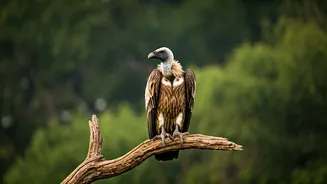Bird Population Downturn
Recent data compiled by citizen scientists paint a stark picture: India's bird populations are in decline. This observation serves as a crucial wake-up
call, emphasizing the need for comprehensive conservation strategies. The study, relying on data contributed by dedicated bird watchers across the nation, revealed an alarming trend that warrants immediate attention and focused action. The widespread nature of this decline necessitates a re-evaluation of current conservation efforts to determine what adjustments are needed to ensure the survival of various bird species throughout India. The importance of citizen science in tracking these patterns cannot be overstated, as their contributions provide valuable insights that might otherwise go unnoticed. This is crucial for early detection of environmental changes.
Citizen Science Role
The research's reliance on citizen science data is particularly noteworthy. It underscores the invaluable contributions of amateur bird enthusiasts who dedicate their time to observation and data collection. This collaborative approach expands the scope of scientific research, enabling the capture of widespread trends across the Indian landscape. Without these diligent efforts, the extent of the bird population decline might have remained hidden for a longer time. Citizen science not only provides crucial data but also fosters public awareness and involvement in environmental protection. It highlights the power of community-driven initiatives in addressing significant ecological challenges, underscoring the benefits of cooperation across various sectors and involving the public.
Equity: A Conservation Lens
The article touches upon the concept of 'inter-generational equity', and offers a new perspective. The idea is anthropocentric, meaning it is focused on human values, and its effectiveness in protecting endangered species may be limited. Justice Narasimha's viewpoint suggests a re-evaluation of such human-centered approaches within conservation. This implies a need to consider broader ecological principles that may not always align with solely human-focused objectives. The discussion challenges the conventional approaches, advocating for a holistic perspective that integrates ecological needs alongside human interests. The ongoing conversation stresses that conservation efforts must balance the interests of humanity with the intrinsic value of biodiversity and ecosystems, ensuring their preservation for future generations.
Vultures' Habitat Importance
The article also emphasizes the significance of habitats like the ‘neer maruthu’ trees in Mudhumalai Tiger Reserve for endangered vultures. These trees provide essential refuge, and their preservation is crucial for maintaining biodiversity. The focus on vultures highlights the need to protect specific ecosystems that provide sanctuary to endangered species. The preservation of these natural habitats is essential for ensuring the long-term survival of vulnerable populations. This perspective also underscores the importance of maintaining ecological balance, recognizing the interdependencies among different species within an ecosystem. Protecting such areas is crucial to prevent the further loss of biodiversity, and support various species, including endangered vultures.















